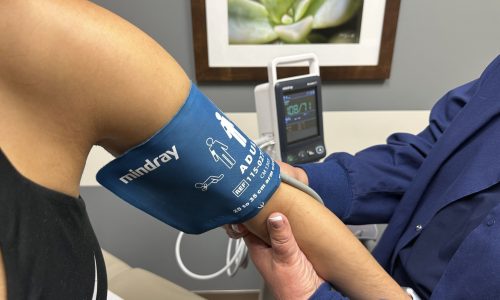The SRMC Community Health department offers a variety of supportive programs for our region. A general list of the services available include the following:
- Blood Pressure Screenings and Education
- Onsite Screenings Available
- Community Health Education
- Community Immunization Clinics
- Life-Assist Alerts
- Nutrition Services
- Pre-employment Screenings
- Department of Transportation Physicals
- Drug Screening (DOT and non-DOT)
- Hearing Screening
- Lift Testing
- Physicals
- Pulmonary Function Testing/Respiratory Mask Fit
- Seasonal Flu Vaccinations for Businesses and Communities








